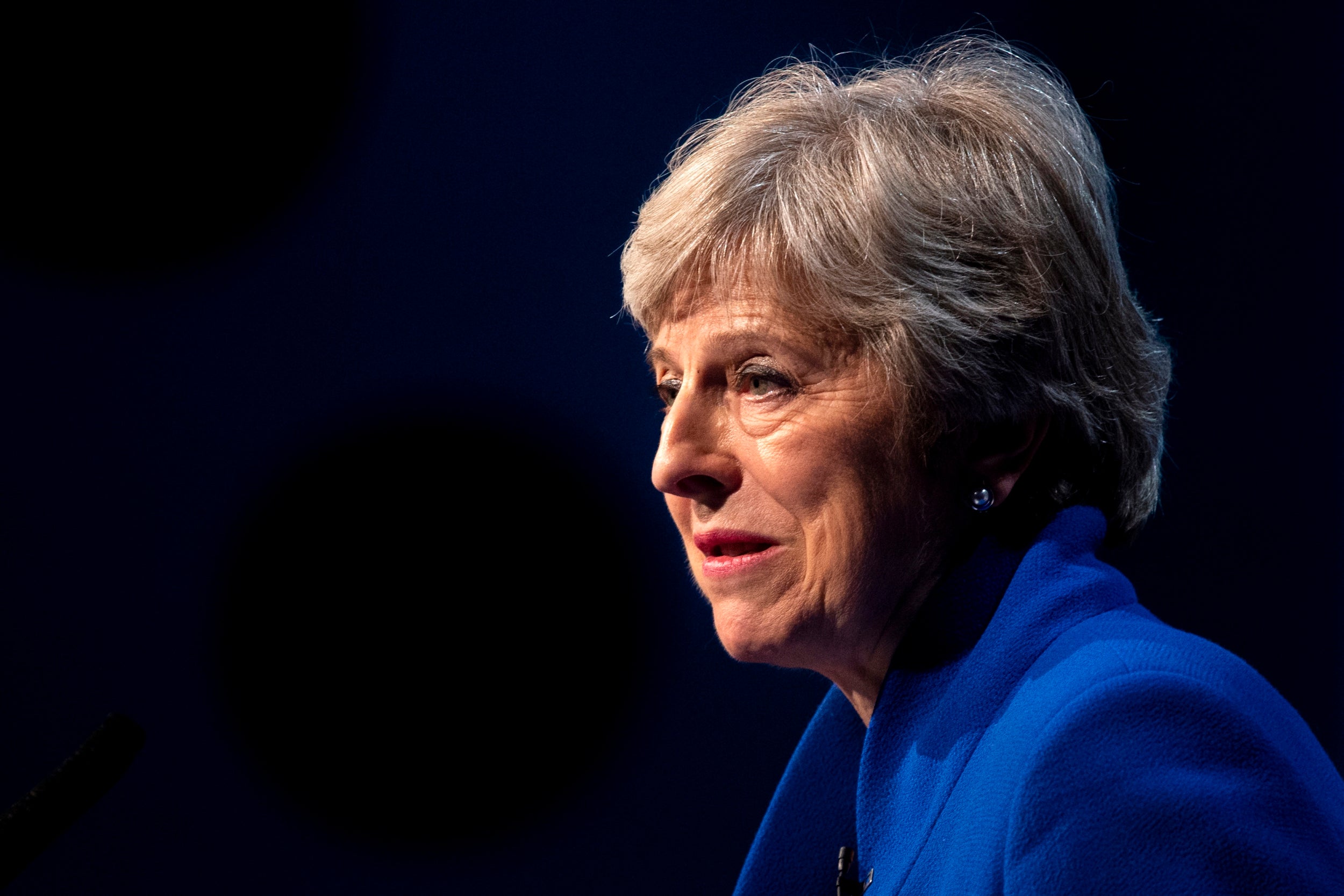Theresa May might engage in airy-fairy Brexit rhetoric, but she deserves credit for getting on with it
The last desperate attempt at progress will perhaps happen in December, after which point things will simply be too tight to avoid the dreaded hard Brexit

The managing director of the International Monetary Fund, Christine Lagarde, says of Brexit: “Whatever the deal is will not be as good as it is at the moment.” True, but hardly new. Indeed, her critics will point out that she was saying much the same before the 2016 EU referendum as part of the “Project Fear” Remain campaign, possibly at the behest of the then-chancellor, George Osborne. Nonetheless, her warning is timely – and correct.
Coded but unmistakeable endorsement comes from Mr Osborne’s successor Philip Hammond, who, in a rare public intervention, parrots the usual caveats about confidence in achieving a deal, but once again discharges his duty to tell the British people the truth about Brexit. “Despite the contingency actions we are taking, leaving without a deal would put at risk the substantial progress the British people have made over the last 10 years.”
Contrast these gloomy but realistic assessments, echoed by virtually every leading business, with Theresa May’s airy, fact-free declaration that “Britain’s best days are ahead”. If they are, then they may be some way beyond Ms May’s political lifetime.
And so the pantomime rolls on. Boris Johnson, operating under the law of diminishing returns, uses his newspaper columns to deliver ever more extreme protests in ever more lurid language to attract attention. Having chucked away his suicide bomb vest, and stopped trying to polish the unpolishable, the clown prince of British politics has taken to invoking the memory of Harold Godwinson, whose death in combat in 1066 is evidently recalled with great passion by this modern Anglo-Saxon. What a phoney.
Away from Mr Johnson’s shaky history and purple prose, there is work to be done, and a conscientious prime minister is getting on with it – for that at least she deserves credit.
She starts another gruelling run of European summits with a dinner with her counterparts in Salzburg. After that come summits this month, in October and November (the probable last date by which some kind of deal may be agreed), and a last, perhaps desperate, attempt at progress in December, after which point things will simply be too tight to avoid the dreaded hard Brexit.
Though every day seems to bring a twist in the tale, some new spin to raise or crush the spirits, the latest noises from Brussels seem relatively encouraging for Ms May. There is now EU talk of “technological” answers to the Irish border issue – and, by extension, the wider issue of cross-border trade across the English Channel. That would be a substantial step forward for her vision of a “facilitated customs arrangement”. The fact that no one anywhere in the world has yet come up with an obviously workable system of this kind that can slot into place across all of the UK’s land, sea or air borders with the EU should mean that such speculation is greeted with a great deal of scepticism.
Ms May’s negotiations in Europe may be happier, or at least more polite, than events over the next few months in the House of Commons and her own party promise to be. She will have to withstand more “irritating” leadership speculation at the Tory conference, followed by simultaneous, and mutually contradictory, threats to both sides of the debate. To Remainers such as Sir Vince Cable or Chuka Umunna, she will say that the alternative to the Chequers plan, or a version of it, is a horrible hard Brexit. To the implacable Eurosceptics led by Jacob Rees-Mogg and Bernard Jenkin, she says that it is either her plan, under which we do leave, or we stay in the EU, with a Labour government thrown in. Michael Gove helpfully adds that a future PM (him?) can then loosen the ties until hard Brexit is achieved. It is a gamble with obvious risks – that neither side will be spooked enough to cave in to her, and that the EU may not fancy the provisional nature of it.
Perhaps as a consequence, there may be more delays. What is now being sketched out is a plan to kick the Brexit can down the road for another 18 months or so, the end of the transition period. The outline of this improvised path forward is as follows: the UK and EU agree on a broad political declaration (ie fudge) about future trade and security cooperation; do much the same over the Irish border issue; and promise to work harder than ever to make things work for some new unprecedented deal. That done, the withdrawal agreement can be agreed, complete with the £39bn divorce payment and rights of EU and UK citizens settled, the transition period kicks in, during which time nothing practical will change, and the continent breathes a sigh of relief.
Yet all this leaves things unresolved, and, crucially, locks the British people out of the discussion about their future. They are increasingly demanding a say, and the rapid movement of opinion in the Labour Party suggests that they will have their say. If Labour’s conference does indeed endorse a Final Say referendum, with the option to stay in the EU on existing terms, then that should be regarded by Jeremy Corbyn as the democratic will of his sovereign governing body. He is morally and politically obliged to do as conference demands. He can deliver that Final Say. The ball is at his feet.
Join our commenting forum
Join thought-provoking conversations, follow other Independent readers and see their replies
Comments
Bookmark popover
Removed from bookmarks